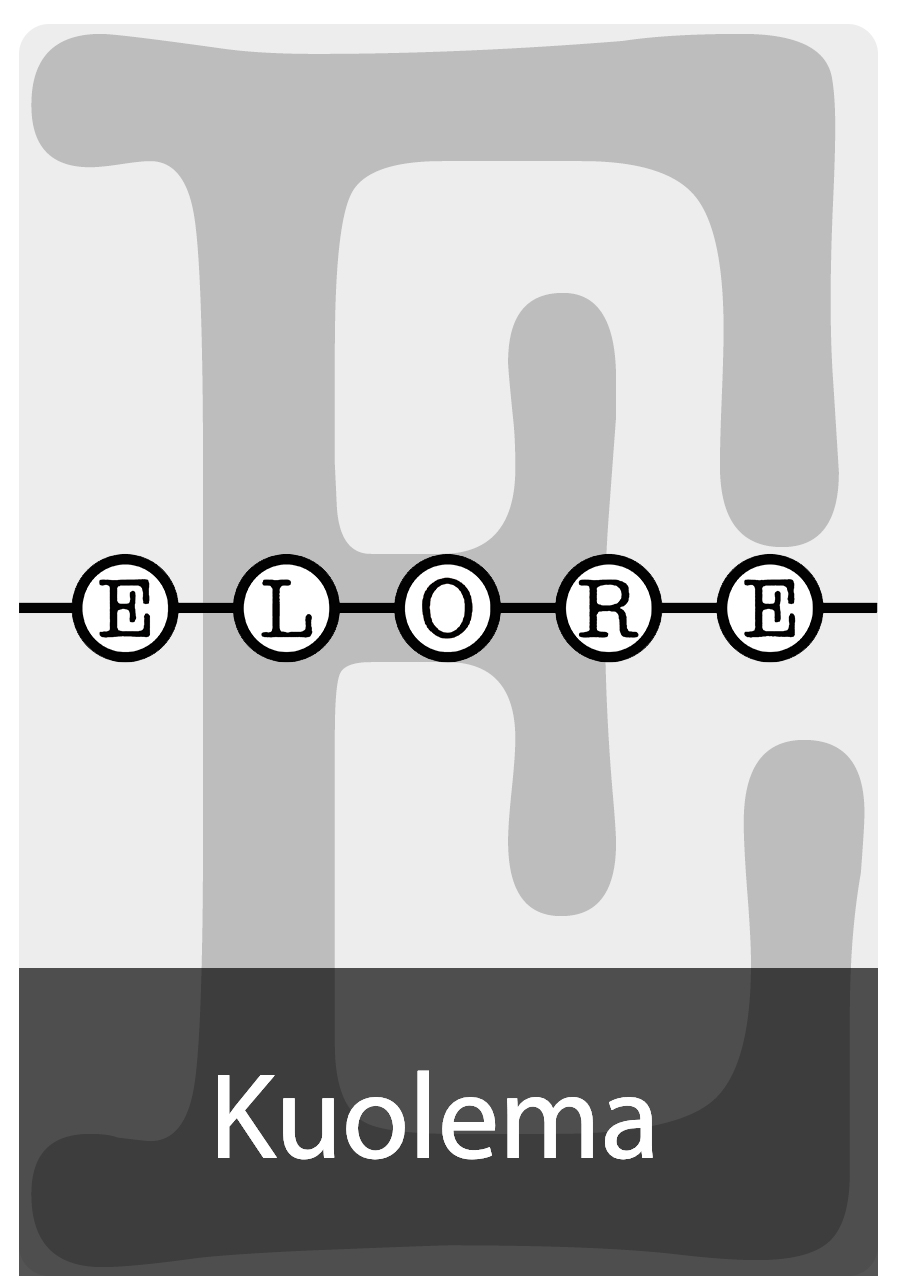Rituaali, identiteetti ja ylirajaisuus
DOI:
https://doi.org/10.30666/elore.78500Abstract
In this article I ponder the relationship between rituals and identities in the context of the remigration of persons of Finnish origin from Russia to Finland. The traditional ethnological study of rituals of death presupposes that ritual has to do with the community’s system of values and answers the main questions of human existence concerning the possibility of eternal life. In this conception of ritual the person is seen as a member of collective and a carrier of its culture. On the contrary, the postmodern theory of subjectivity releases the subject from membership in the stable group, but argues that identification is a flexible strategic process, serving the individual’s and group’s future goals. Using examples of official Soviet-era funeral scenarios and unofficial Russian folk-religious funerals, I analyze those cultural models and ideologies. Through my own experiences of funerals in Petrozavodsk and Joensuu I introduce the multivoicedness of funeral practices. Remigration to Finland is a part of present-day Finnish nationalism on the one hand, and global transnational migration and diasporic space on the other. A return migrant’s ethnic, national, ideological and cultural identification tends to be multi- layered, inconsistent and hybrid. Conducting ritual according to a certain canon does not automatically express the “true identity” or moral values of the community, but rather perceived configurations of cultural power-relations of the society of residence.Downloads
Published
How to Cite
Issue
Section
License
The journal follows Diamond Open Access publishing model: the journal does not charge authors and published texts are immediately available on the Journal.fi service for scientific journals. By submitting an article for publication on Elore, the author agrees, as of September 2024, that the work will be published under a CC BY 4.0 licence. Under the licence, others may copy, transmit, distribute and display the copyrighted work and any modified versions of the work based on it only if they attribute the licence, the original publication (link or reference) and the author as the original author. Any modifications made must be acknowledged.
Copyright of the texts remains with the authors, and self-archiving (Green OA) of the published version is allowed. This also applies to texts published before September 2024. The Green OA publication must include Elore's publication details.
The metadata for published articles is licensed under Creative Commons CC0 1.0 Universal.





